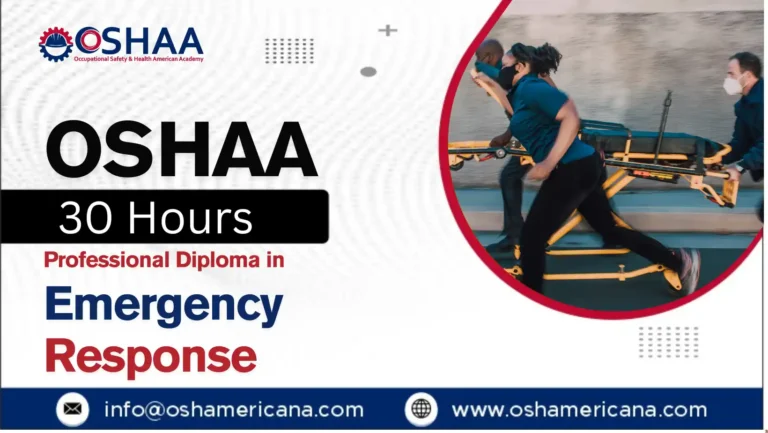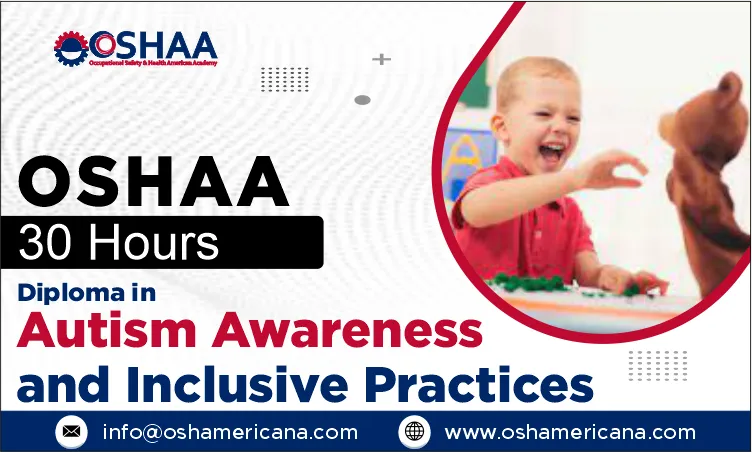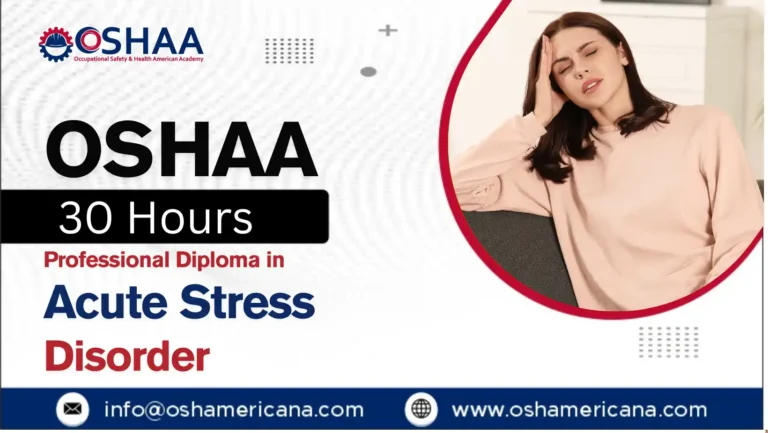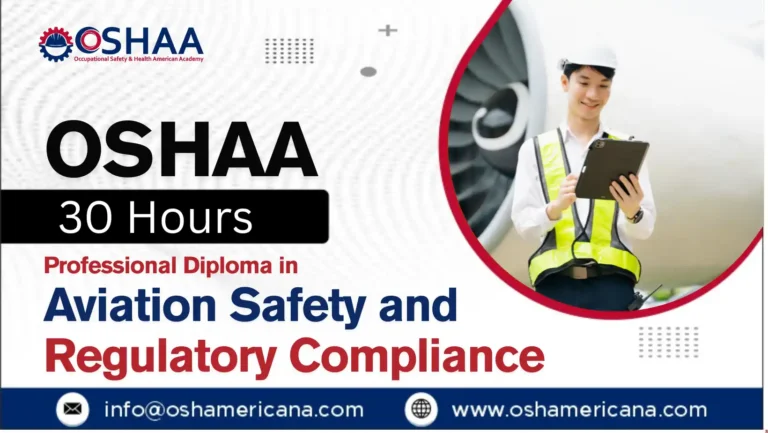Enhance your medical expertise with the OSHAA 30-Hours Advance Diploma in Cardiac Life Support (ACLS). Gain advanced life-saving skills for critical cardiac emergencies.
The OSHAA 30-Hours Advance Diploma in Cardiac Life Support (ACLS) is an advanced, globally recognized program designed to equip healthcare professionals with the critical skills, knowledge, and confidence required to respond effectively to cardiac emergencies. In today’s fast-paced healthcare environment, the ability to deliver immediate and accurate intervention during life-threatening events such as cardiac arrest, arrhythmias, and severe cardiac distress can determine patient survival. This specialized diploma goes beyond basic life support, preparing professionals to manage the most complex clinical scenarios with precision, compliance, and expertise.
The OSHAA 30-Hours Advance Diploma in Cardiac Life Support (ACLS) integrates essential clinical interventions such as medication administration, defibrillation, advanced airway management, and circulation restoration strategies. Participants are trained in both theoretical knowledge and practical application, ensuring they can make informed, timely decisions under pressure. By focusing on internationally recognized ACLS protocols, this course enables healthcare providers to deliver the highest standard of emergency cardiac care while aligning with OSHA and international patient safety regulations.
This program holds immense value for healthcare professionals working in emergency departments, intensive care units, operating theaters, pre-hospital emergency services, and critical care facilities. The OSHAA 30-Hours Advance Diploma in Cardiac Life Support (ACLS) ensures that doctors, nurses, paramedics, and allied health professionals acquire the advanced competencies necessary to lead and support medical teams during cardiac crises. Rapid and effective intervention not only improves survival rates but also reduces the risk of long-term complications such as irreversible brain damage, reinforcing the importance of advanced life-saving education in healthcare.
The OSHAA 30-Hours Advance Diploma in Cardiac Life Support (ACLS) is more than a qualification—it is a professional investment in lifesaving capabilities. Participants completing this program will be equipped with enhanced skills to handle high-pressure medical emergencies, strengthen compliance with global safety standards, and contribute to improved patient outcomes. By mastering ACLS protocols, learners advance their professional development, expand career opportunities, and elevate their role in safeguarding public health. For healthcare organizations, having staff certified in this diploma ensures compliance with safety regulations, strengthens emergency preparedness, and fosters a culture of clinical excellence.
Completing the OSHAA 30-Hours Advance Diploma in Cardiac Life Support (ACLS) demonstrates a strong commitment to patient safety, professional growth, and regulatory alignment. As a globally respected credential, it empowers healthcare professionals to lead with confidence, respond decisively in emergencies, and deliver life-saving care when it matters most. This course is an essential pathway for those determined to uphold the highest standards of medical practice and improve the quality of emergency healthcare worldwide.
OSHAA 30-Hours Advance Diploma in Cardiac Life Support (ACLS)
To enroll in the OSHAA 30-Hours Advance Diploma in Cardiac Life Support (ACLS), learners are expected to meet the following criteria:
1. Age Requirement
- Applicants must be at least 18 years of age to be eligible for enrollment in the OSHAA 30-Hours Advance Diploma in Cardiac Life Support (ACLS).
- The minimum age requirement ensures that participants have the maturity, responsibility, and decision-making capacity necessary to handle critical healthcare training.
- This standard aligns with professional healthcare and OSHA training guidelines, ensuring learners are prepared to engage in advanced medical education.
2. Educational Background
- Candidates should have completed at least a secondary school education (high school diploma or equivalent) to enroll in the OSHAA 30-Hours Advance Diploma in Cardiac Life Support (ACLS).
- Higher education in nursing, medicine, emergency care, or allied health sciences is considered an advantage, as it enhances understanding of advanced medical concepts.
- The course is designed to benefit a broad range of healthcare professionals, and individuals with relevant medical or paramedical qualifications will gain maximum value from the program.
- Having a strong academic foundation ensures that learners can effectively engage with the complex clinical and procedural knowledge presented throughout the OSHAA 30-Hours Advance Diploma in Cardiac Life Support (ACLS).
3. Work Experience
- While prior work experience in healthcare is not mandatory, it is strongly recommended for those enrolling in the OSHAA 30-Hours Advance Diploma in Cardiac Life Support (ACLS).
- Healthcare professionals such as doctors, nurses, paramedics, and emergency responders will find this course directly applicable to their daily responsibilities in clinical and emergency settings.
- Learners with previous exposure to patient care or emergency response scenarios will have a significant advantage in understanding practical applications of ACLS protocols.
- For individuals new to healthcare, the OSHAA 30-Hours Advance Diploma in Cardiac Life Support (ACLS) provides a strong professional foundation for future career development in emergency medicine and critical care.
4. English Proficiency
- All participants enrolling in the OSHAA 30-Hours Advance Diploma in Cardiac Life Support (ACLS) must possess the ability to read, write, and communicate effectively in English.
- Proficiency in English is essential to fully comprehend course materials, clinical guidelines, OSHA compliance documentation, and emergency response protocols.
- Effective communication skills also ensure that learners can apply ACLS techniques in real-world medical environments, collaborate with international healthcare teams, and maintain regulatory standards.
- This requirement guarantees that participants can actively engage in both the theoretical and practical components of the OSHAA 30-Hours Advance Diploma in Cardiac Life Support (ACLS) with confidence.
The eligibility requirements for the OSHAA 30-Hours Advance Diploma in Cardiac Life Support (ACLS) are carefully structured to ensure that learners are adequately prepared to undertake advanced training in cardiac emergency response. By meeting these standards, participants will be positioned to gain maximum benefit from this globally recognized program, enhance their professional skills, and ensure compliance with international healthcare and OSHA training requirements.
Study Units
Learning Outcomes
The OSHAA 30-Hours Advance Diploma in Cardiac Life Support (ACLS) is designed to provide learners with advanced life-saving competencies, OSHA-compliant knowledge, and the leadership skills required to manage high-pressure cardiac emergencies with precision and professionalism. The learning outcomes of this course ensure that participants are equipped not only with critical technical expertise but also with the ability to foster safety, compliance, and operational excellence in global healthcare environments. Upon successful completion, learners will be able to apply advanced cardiac emergency protocols, demonstrate enhanced decision-making in complex scenarios, and lead resuscitation teams in line with international best practices.
1. Basic Life Support (BLS) and CPR Review (3 hours)
- Demonstrate a solid understanding of the core principles of Basic Life Support and their integration into the OSHAA 30-Hours Advance Diploma in Cardiac Life Support (ACLS).
- Apply proper CPR techniques for adults, children, and infants, ensuring alignment with OSHA standards and global clinical guidelines.
- Recognize the importance of early intervention and apply rapid response measures in life-threatening emergencies.
- Strengthen confidence in delivering consistent and effective BLS interventions during cardiac arrest scenarios.
2. Advanced Cardiac Arrest Management (4 hours)
- Apply advanced resuscitation protocols taught in the OSHAA 30-Hours Advance Diploma in Cardiac Life Support (ACLS) to improve patient survival rates.
- Identify and manage different stages of cardiac arrest using evidence-based strategies.
- Execute advanced airway management techniques to maintain oxygenation and circulation.
- Lead resuscitation teams effectively, ensuring that interventions are delivered promptly and efficiently in compliance with international standards.
3. Pharmacology in Cardiac Arrest (5 hours)
- Understand and apply pharmacological interventions within the framework of the OSHAA 30-Hours Advance Diploma in Cardiac Life Support (ACLS).
- Identify the role of key medications used during cardiac arrest and understand their indications, dosages, and contraindications.
- Integrate medication administration with resuscitation strategies to enhance patient outcomes.
- Demonstrate competency in following pharmacological protocols while ensuring OSHA compliance and patient safety.
4. Post-Cardiac Arrest Care (3 hours)
- Provide comprehensive post-cardiac arrest care as outlined in the OSHAA 30-Hours Advance Diploma in Cardiac Life Support (ACLS).
- Implement therapeutic strategies to stabilize patients following resuscitation and prevent recurrence.
- Monitor neurological status and apply targeted temperature management to support long-term recovery.
- Strengthen critical decision-making skills in managing complex post-arrest conditions.
5. Stroke Recognition and Management (4 hours)
- Accurately identify the signs and symptoms of stroke within the OSHAA 30-Hours Advance Diploma in Cardiac Life Support (ACLS) framework.
- Apply standardized assessment tools such as the FAST and NIH Stroke Scale for rapid recognition.
- Initiate immediate interventions to minimize brain injury and improve survival outcomes.
- Collaborate effectively with stroke response teams to ensure continuity of care and compliance with clinical standards.
6. Managing Arrhythmias (5 hours)
- Interpret and manage life-threatening arrhythmias as emphasized in the OSHAA 30-Hours Advance Diploma in Cardiac Life Support (ACLS).
- Differentiate between bradyarrhythmias, tachyarrhythmias, and ventricular arrhythmias using ECG analysis.
- Implement appropriate treatment protocols including defibrillation, pacing, and pharmacological interventions.
- Enhance decision-making in urgent situations where rapid arrhythmia management is critical for patient survival.
7. Team Dynamics in Resuscitation (3 hours)
- Develop leadership and coordination skills for resuscitation teams, a core focus of the OSHAA 30-Hours Advance Diploma in Cardiac Life Support (ACLS).
- Understand the importance of clear communication, role clarity, and situational awareness during emergencies.
- Build teamwork strategies that ensure compliance with safety and operational standards.
- Lead teams with confidence in diverse healthcare settings to achieve successful outcomes.
8. Special Considerations in Cardiac Emergencies (3 hours)
- Address complex scenarios such as cardiac arrest in pregnancy, trauma-related emergencies, or patients with chronic health conditions.
- Apply specialized clinical interventions taught in the OSHAA 30-Hours Advance Diploma in Cardiac Life Support (ACLS) to unique patient groups.
- Adapt resuscitation strategies to challenging environments while ensuring OSHA compliance and patient safety.
- Enhance readiness to respond effectively to non-standard cardiac emergencies in both hospital and pre-hospital settings.
By completing the OSHAA 30-Hours Advance Diploma in Cardiac Life Support (ACLS), participants will gain comprehensive expertise in advanced resuscitation techniques, pharmacological interventions, post-arrest care, and team leadership in critical care situations. This course prepares healthcare professionals to take on leading roles in emergency response, ensures adherence to OSHA and international compliance standards, and fosters a culture of patient safety and professional excellence in healthcare practice worldwide.
The OSHAA 30-Hours Advance Diploma in Cardiac Life Support (ACLS) offers extensive benefits for healthcare professionals, organizations, and stakeholders who are committed to enhancing safety, compliance, and professional excellence in the management of cardiac emergencies. This advanced qualification is globally recognized, aligning with OSHA standards and international healthcare guidelines, making it a vital program for those working in critical care, emergency medicine, and life-saving interventions. The course benefits extend beyond technical skills, offering professional development opportunities, regulatory compliance assurance, and improved workplace efficiency, ultimately strengthening healthcare systems worldwide.
1. Advanced Knowledge and Clinical Skills
- Gain comprehensive knowledge of cardiac life support, including advanced resuscitation techniques and post-arrest care.
- Enhance practical expertise in managing cardiac arrest, arrhythmias, and complex cardiovascular emergencies.
- Improve clinical confidence and competency in high-pressure healthcare environments.
2. Regulatory Compliance and Global Standards
- Meet OSHA requirements and align with internationally recognized cardiac emergency protocols.
- Strengthen compliance with healthcare safety regulations, reducing liability risks for organizations.
- Ensure adherence to global resuscitation standards for patient safety and clinical excellence.
3. Workplace Safety and Incident Reduction
- Apply life-saving interventions that minimize workplace incidents related to cardiac events.
- Reduce risks in critical healthcare environments through rapid and effective emergency response.
- Strengthen organizational safety culture by equipping staff with ACLS-certified expertise.
4. Professional Development and Career Advancement
- Enhance your professional profile with the OSHAA 30-Hours Advance Diploma in Cardiac Life Support (ACLS).
- Increase employability and promotion opportunities in emergency care, intensive care, and critical care units.
- Gain a recognized certification that demonstrates advanced competencies in cardiac emergency management.
5. Cost Savings and Operational Efficiency
- Reduce hospital costs by improving survival rates and preventing complications.
- Lower expenses related to workplace medical emergencies through timely interventions.
- Improve operational efficiency in healthcare facilities by minimizing downtime and maximizing response readiness.
6. Leadership and Team Management Skills
- Develop strong leadership abilities in managing resuscitation teams during cardiac emergencies.
- Strengthen communication, decision-making, and delegation skills under high-stress conditions.
- Build confidence in leading multidisciplinary teams toward positive patient outcomes.
7. Improved Worker Well-Being and Productivity
- Foster a safe and supportive environment for healthcare professionals working in high-risk areas.
- Reduce stress and anxiety by equipping staff with advanced skills to manage emergencies.
- Increase productivity through improved preparedness and reduced workplace disruption.
8. Emergency Preparedness and Risk Management
- Equip healthcare teams with the ability to act swiftly in cardiac arrest and life-threatening emergencies.
- Improve organizational resilience by implementing ACLS strategies into emergency response protocols.
- Strengthen crisis management systems to ensure readiness in both hospital and pre-hospital settings.
9. Continuous Improvement and Innovation
- Stay updated with the latest guidelines in cardiac life support and emergency care.
- Integrate evidence-based innovations into daily practice for enhanced patient outcomes.
- Build a culture of continuous learning and development within healthcare teams.
10. Global Recognition and Credibility
- Achieve a qualification that is respected worldwide in healthcare and emergency response.
- Strengthen institutional credibility by ensuring staff are trained to OSHA and international standards.
- Increase global mobility and career opportunities for healthcare professionals with ACLS expertise.
11. Practical Application in Diverse Settings
- Apply ACLS training across emergency departments, intensive care units, pre-hospital settings, and critical care environments.
- Strengthen decision-making and adaptability in real-world emergency scenarios.
- Expand professional competencies applicable to both clinical practice and organizational safety systems.
12. Lifelong Learning and Career Growth
- Gain a strong foundation for further professional training in advanced emergency care and life support.
- Strengthen pathways toward specialization in emergency medicine, critical care, and cardiology.
- Build continuous personal and professional growth with a globally recognized diploma.
By completing the OSHAA 30-Hours Advance Diploma in Cardiac Life Support (ACLS), learners gain far more than a certification—they acquire advanced clinical competencies, regulatory knowledge, leadership capabilities, and career-enhancing opportunities that directly impact patient survival rates and organizational success. This program not only prepares participants to respond effectively to cardiac emergencies but also empowers them to lead safety initiatives, strengthen compliance, and contribute to a culture of excellence in healthcare worldwide.
The OSHAA 30-Hours Advance Diploma in Cardiac Life Support (ACLS) is designed for healthcare professionals, organizations, and stakeholders who are committed to ensuring excellence in emergency response, patient safety, and compliance with international healthcare standards. This program is globally relevant, aligning with OSHA training requirements and best practices in advanced cardiac life support. By targeting key professionals across the healthcare spectrum, the course enhances knowledge, strengthens workplace safety systems, and supports professional development on a global scale.
1. Emergency Physicians
- Play a crucial role in managing life-threatening cardiac conditions in emergency departments.
- The OSHAA 30-Hours Advance Diploma in Cardiac Life Support (ACLS) equips them with the latest interventions for rapid response.
- Gain advanced skills in defibrillation, airway management, and pharmacological interventions.
- Ensure OSHA compliance by applying standardized life support protocols in emergency settings.
2. Critical Care Nurses
- Provide essential care to patients in intensive care units and cardiac wards.
- This course enhances their ability to respond quickly to sudden cardiac arrests.
- Develop specialized knowledge in post-cardiac arrest care and team-based resuscitation.
- Strengthen workplace safety by minimizing risks and improving survival outcomes.
3. Paramedics and First Responders
- Are often the first line of defense in pre-hospital cardiac emergencies.
- The OSHAA 30-Hours Advance Diploma in Cardiac Life Support (ACLS) ensures readiness for high-pressure scenarios.
- Gain confidence in handling arrhythmias, cardiac arrest, and airway emergencies.
- Support OSHA standards through consistent, high-quality emergency interventions.
4. Intensive Care Specialists
- Manage patients requiring advanced life support and continuous monitoring.
- This course deepens their expertise in cardiac emergency management.
- Learn strategies for managing complex arrhythmias and acute cardiac events.
- Improve organizational compliance with global safety and healthcare regulations.
5. Medical Residents and Trainees
- Are building their foundation in advanced emergency and cardiac care.
- The OSHAA 30-Hours Advance Diploma in Cardiac Life Support (ACLS) provides structured, practical learning.
- Strengthen clinical decision-making skills under pressure.
- Align early career training with OSHA safety standards and international best practices.
6. Anesthesiologists
- Often oversee patient stability during high-risk procedures and surgeries.
- This course equips them to respond to sudden cardiac arrests in the operating room.
- Gain advanced airway management skills and pharmacological expertise.
- Contribute to safe surgical outcomes and compliance with healthcare safety standards.
7. Healthcare Administrators and Safety Officers
- Oversee safety and compliance protocols within hospitals and clinics.
- The OSHAA 30-Hours Advance Diploma in Cardiac Life Support (ACLS) enhances their ability to implement OSHA-aligned training.
- Ensure staff readiness and preparedness for cardiac emergencies.
- Improve organizational safety culture and patient protection systems.
8. Military and Remote Healthcare Providers
- Deliver life-saving interventions in challenging and resource-limited environments.
- This course equips them to manage cardiac arrests without immediate hospital support.
- Develop adaptable ACLS skills suited for field operations and remote locations.
- Maintain compliance with global safety guidelines even in extreme environments.
9. International Healthcare Professionals
- Work in diverse healthcare systems that require standardized ACLS skills.
- The OSHAA 30-Hours Advance Diploma in Cardiac Life Support (ACLS) provides globally recognized certification.
- Enhance employability and career progression across international healthcare markets.
- Contribute to consistent global standards of patient care and workplace safety.
10. Medical Educators and Trainers
- Play a vital role in training the next generation of healthcare providers.
- This course strengthens their ability to deliver ACLS education aligned with OSHA standards.
- Gain updated knowledge on advanced protocols and innovations in cardiac life support.
- Ensure professional development while improving training outcomes for students.
The OSHAA 30-Hours Advance Diploma in Cardiac Life Support (ACLS) is a globally relevant training program that equips a wide range of healthcare professionals with advanced competencies in cardiac emergency management. By enhancing technical expertise, regulatory compliance, leadership skills, and workplace readiness, the course ensures that participants are fully prepared to deliver life-saving care, strengthen safety protocols, and promote operational excellence across healthcare organizations worldwide.







